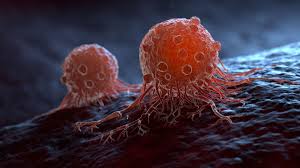A Deeper Dive into Cancer: Unraveling the Complexities
Cancer, a disease that has plagued humanity for millennia, is a complex and multifaceted condition. While infections can contribute to the development of certain cancers, they are not the sole or even primary cause. A multitude of factors, including genetic, environmental, and lifestyle elements, play a significant role in cancer initiation and progression.
The Genetic Underpinnings of Cancer:
At the heart of cancer lies the genetic code. Mutations, or alterations in DNA, can disrupt the genes that regulate cell growth, division, and death. These mutations can be inherited, acquired through exposure to carcinogens, or occur spontaneously during cell division.
When these mutations occur in genes that control cell growth and proliferation, they can lead to uncontrolled cell division and the formation of tumors. These abnormal cells may evade the body's natural defense mechanisms, divide rapidly, and spread to other parts of the body.
Environmental Factors and Lifestyle Choices:
Environmental factors and lifestyle choices can significantly influence cancer risk. Exposure to carcinogens, such as tobacco smoke, radiation, and certain chemicals, can damage DNA and increase the likelihood of mutations. Additionally, unhealthy dietary habits, excessive alcohol consumption, and lack of physical activity can create an environment that promotes cancer development.
The Role of the Immune System:
The immune system plays a crucial role in protecting the body from cancer. A healthy immune system can recognize and eliminate abnormal cells before they develop into tumors. However, when the immune system is compromised, it may be less effective at detecting and destroying cancerous cells.
Infections and Cancer: A Complex Relationship:
While infections can contribute to certain cancers, it's important to note that they are not the primary cause for most cases. Some viruses and bacteria can insert their genetic material into human cells, disrupting normal cell function and promoting uncontrolled growth. Examples include human papillomavirus (HPV) and hepatitis B.
However, it's essential to remember that most infections do not lead to cancer, and the vast majority of cancers are not caused by infections. The relationship between infections and cancer is often complex and involves other contributing factors.
The Future of Cancer Research:
Advancements in cancer research have led to a deeper understanding of the disease and the development of more effective treatments. Ongoing research is exploring new therapeutic approaches, including immunotherapy, targeted therapies, and personalized medicine.
Additionally, efforts are being made to improve cancer prevention through public health initiatives, early detection programs, and the development of vaccines against cancer-causing viruses.
Conclusion:
Cancer is a multifaceted disease with a myriad of contributing factors. While infections can play a role in certain cases, genetic alterations, environmental exposures, lifestyle choices, and immune system function are the primary drivers of cancer development. Understanding the complex interplay of these factors is crucial for developing effective prevention and treatment strategies. As research continues to advance, we can hope for a future where cancer is a more manageable and, ultimately, preventable disease.
